- Home
- Bill James
Snatched Page 4
Snatched Read online
Page 4
‘Yes, totally real,’ he said. ‘One hundred per cent genuine wax. Don’t agitate yourself.’
‘But how? Have you made a new one, or did you find the original somewhere?’
The police inspector shifted on his chair.
‘He’d been flung into a preservative cupboard in the Avian section,’ Lepage replied, ‘the clothes obviously taken off for the masquerade, and then thrown in with him afterwards. As we’ve all thought from the start, it’s someone who knows the Hulliborn well.’
‘This to do with the art?’ the inspector asked.
Lepage covered the mouthpiece again. ‘No, another matter.’
‘Masquerade?’ the sergeant said.
‘That kind of thing,’ Lepage said.
‘A cupboard?’ Kate said. ‘You found him there, just plain wax? It sounds horrible. Unfeeling.’
Lepage freed the mouthpiece. ‘Yes, but he’s re-dressed and tidied now and put back in position with his nice little family, “blithely breakfasting all”.’
‘That’s Hardy, isn’t it?’ the sergeant said. ‘During Wind and Rain.’
‘They’ve smoothed out bumps to his head and face, caused by being chucked into the cupboard among the preservatives.’
‘Who?’ the inspector said.
‘Nobody could tell there’s been anything wrong,’ Lepage said. ‘You’ll see.’
‘I’m trying to visualize it,’ Kate said.
‘The display is just as it appeared when you first walked into the room,’ Lepage replied.
‘No, what I mean is, trying to visualize this poor, shiny, uncovered wax object in a cupboard full of those cans and application brushes. Was he up the right way? It’s hurtful to think of him shoved in there on his head, or thoughtlessly crumpled. So degrading and chaotic. It’s only an imitation, I know, but … do you see what I mean, George?’
‘Jervis, a porter, found him. I didn’t hear the details.’
‘George, when I go back into the … the Folk room – do you know, I can hardly force myself to speak the words, I’m so shaken by it still? But when I go in there, I’d like it, really, to be when there are no visitors about at all. I don’t think I could bear that – others in the vicinity.’
‘I do understand.’
The inspector said: ‘Dr Lepage. Please.’
Kate said: ‘Do you think you could take me in there one evening when the museum is closed? I need to feel very relaxed if I’m going to do this, George, and I know I must do it to rid myself of a memory that could become a complex.’
‘Evening? Well, yes, that could be organized. Would you drive here?’
‘Perhaps I can return hospitality and buy you a drink afterwards.’
‘Why not?’
‘It will be such a relief, George. I’ve always loved museums, and I don’t want to develop a block because of – well, because of the merely untoward. It’s important for my work that I should feel comfortable in museums.’
‘Yes, untoward, you’re right.’
When Lepage had rung off, the inspector said: ‘Nice, the bit about communicating through the platypus. It does look very knowing. Now, sir, I’ve read the maybe-maybe statement on the wall about the three supposed “El Grecos” that seem to have gone. We’ve got cars out and put road blocks in place, of course, so your little chat on the telephone won’t set things back too much.’
‘I assumed that,’ Lepage said.
‘If I get correctly what the caption sheet says, as far as the “El Grecos” are concerned, and leaving aside the Monet for a moment, we could be looking for stuff worth millions or three pounds ninety-nine pence.’
‘Along those lines, yes,’ Lepage replied. ‘I didn’t think it necessary to cut my conversation.’
‘Was that why you were on the premises so late?’ the inspector said.
‘Was what why I was on the premises?’ Lepage replied.
‘To take that call,’ the inspector said.
‘If someone rings late I feel obliged to give proper attention,’ Lepage said. ‘I reason that they wouldn’t do something so unusual if they didn’t consider it important.’
‘A man gets his clothes taken and then hurled back at him in a cupboard?’ the sergeant asked.
‘A place like the Hulliborn has all kinds of unexpected nooks, niches and recesses,’ Lepage said.
Seven
‘So, what the hell’s this?’ Julia hissed.
‘What’s what?’ Lepage grunted.
‘I’m going to tell you. Oh, am I going to tell you, George!’ she said.
For the immediate present, Lepage kept his eyes shut, though he judged from Julia’s voice that this would not give long-term, all-round protection. Saturday: they had both slept on. Last night was one of those very late ones for her, and he had been in bed and blotto by the time she arrived home, despite all the trouble at the Hulliborn. As usual, though, she awoke first and must have gone down to pick up the newspapers. When he did open one eye he saw she was holding the local Morning Messenger, Final Edition, in front of her and away from her, like something foul and incriminating found in a waste bin.
She was doing her hair auburn-to-flame these days, a successful choice, he thought, and he would have liked to tell her now how much it suited her and brought out the excellent lines of her profile. But she would probably regard this as an attempt to flatter and placate her. He stayed quiet. In any case, she had on that cream housecoat, never a favourite with George, a thing of padded rectangles, lacking shape and style, which might have been made from a discarded judo fall mat. Yet it was her knack at choosing outfits marvellously right for herself which had helped attract Lepage, and it amazed him that she never realized this one was so totally off. He closed the eye again.
‘Here we go, then,’ she said in a vile and threatening mock-merry tone, beginning to read the headlines aloud: ‘“Hulliborn in multimillion art treasure raid. Brave, barefoot Director surprises thieves at midnight. International gang suspected. Who is ‘The Fatman’?”’
Lepage opened both eyes and sat up. ‘They’ve decorated things a bit.’
‘Yes?’ She sat down at the dressing table and moved to the text. ‘“Three priceless El Grecos – secured only recently in a sensational deal by world-renowned art ace, Dr Quentin Youde – were taken in a daring, brilliantly organized robbery at the Hulliborn Regional Museum And Gallery late last night. The three paintings – The Awakening, Vision of Malachi, and The Stricken Fig Tree – cost the Hulliborn undisclosed millions three months ago, but this is thought among art-world experts to have been a bargain, and informed sources say they are probably worth at least twice as much today.”’
‘Bollocks,’ Lepage said. ‘They must have rung Quentin Youde in the small hours and he’s been doing some advertising of himself. Is that the lot?’
‘I’m only just starting,’ Julia snarled, and her voice continued at about that flavour as she went on. Her profile was still splendid: her nose straight, noble, non retrousséd. But, on account of something Julia did with her jaw now – a kind of long-lasting thrust forward – her lower lip moved up a bit, engulfing some of the top one. But she had to relax it all when she spoke. ‘Front page, and then on to four.’ She read: ‘“A Monet is also missing.” Now, Georgy, here comes the nicest slice.’
He got back down in the bed. He would have liked to whimper because of what he sensed was coming, but Directors of the Hulliborn did not whimper. They were masterful, like Flounce.
‘“By a fortunate coincidence, newly promoted Director of the Hulliborn, forty-eight-year-old, divorced Dr George Lepage was in the museum at the time of the raid, working late, and taking telephone calls.”’ She rattled the paper, like a town crier with a handbell. ‘You were what? Since when have you been going to the Hulliborn at midnight? Flounce used to take girls there, didn’t he? That a recognized perk of the job, then? What telephone calls? Why do they say divorced?’
‘Well, I am divorced.’
‘Yes, bu
t— What kind of telephone calls?’
‘What kind? Well, museum business, obviously.’
‘At midnight?’
‘From abroad. It wasn’t midnight everywhere, love. Consider Japan. We’re in important contact with Tokyo about a possible future exhibition.’
‘How does their time zone relate to ours, then?’
‘We have to be as tactful and positive as we can,’ Lepage replied. ‘The situation is quite sensitive. Frequent conversations. The very future of the Hulliborn is involved.’
‘So why couldn’t you take the calls here?’ She read on, not waiting for an answer to this, thank God. Instead, she sing-song, sarcastically read: ‘“Lepage – his name derives from a proud line of fifteenth-century fighting men in the Auvergne region of France – although alone in the Central Wing of the Hulliborn, stalked the gang in his bare feet through the corridors, spurning broken glass, Security sources told the Messenger, but was unable to apprehend them. Police say he showed great courage and presence of mind. It is not known whether any of the robbers was armed. None of them had been arrested as we went to press.”’
‘Armed? They’re crazy,’ Lepage said.
‘There’s a dinky pen-portrait of you, part from cuttings, part from what you told the police last night. Presumably, the fighting men from the Auvergne must have come from the stuff you gave them when appointed. “A distinguished scholar in his own right, whose hobbies include cooking and real tennis, Dr Lepage is regarded as something of an eccentric and keeps a stuffed duck-billed platypus (a furry, egg-laying, Eastern Australian creature) on his desk to remind him of his predecessor in the post, Sir Eric Butler-Minton, and to maintain a kind of contact with him.”’
Jesus. Lepage dug himself further into the bed and used the top of the sheet to wipe sweat from around his mouth.
‘George, you actually told this rag that you communicated with the spirit of Flounce through a web-footed mammal? And that’s not what I heard got stuffed on his desk.’
‘I’ve said nothing to them. We’re ex-directory, aren’t we, and they wouldn’t have had time to come out here for an interview. Police were in the room while I was on the phone. I might have mentioned the duck-billed platypus to Japan.’
‘Why? Was it relevant to the exhibition that might come?’
‘Not directly, no.’
‘How, then?’
‘It just came up.’
‘In what way?’
‘I suppose you’d call it a kind of aside,’ Lepage said.
‘You just said to this caller from Tokyo, “Oh, incidentally, I’ve got a duck-billed platypus on my desk handed down by Flounce Butler-Minton and which is handy for getting in touch with him, although dead. This will be very useful in our dealings about the exhibition.”’
‘I don’t know that I would have said anything as specific as that,’ Lepage replied. ‘I wouldn’t call him Flounce, not to Japan. They are a very undemonstrative people. Even good English speakers there might not know the word “flounce”.’
‘What unspecific comment did you make to them, then, about the platypus?’
‘It would have been a sort of ambience thing.’
‘Which sort?’
Julia could be like this, disgustingly relentless. She reverted every now and then to her Hapsburg-jaw mode. ‘Incidental to the main subject of the conversation, yet helping to establish a friendly basis for talks.’
‘Via dead Flounce, whose nickname must not be mentioned to the Far East, and a very dead animal?’
‘This would be a museum talking to a museum,’ Lepage said.
‘So?’
‘We are people with a particular style. It’s true worldwide.’
‘Has Tokyo heard about those behind-the-Wall rumours affecting Flounce – the whippet and Mrs Cray, etcetera? Is that how the matter of the platypus came up?’
Lepage snatched at this ludicrous, donated explanation. ‘It might have been something like that. The newspaper stuff is very garbled. They must have produced the article in a hell of a rush. I remember a while back its editor telling me their final edition is printed at four a.m.’
‘This is a big story for them – the barefoot hero.’ She began reading again. ‘“Dr Lepage occupies a luxury home at King Cottages, with his beautiful companion, Mrs Julia Chakely, in her thirties –” thanks very much: in her thirties always sounds like a lifetime – “who is a business woman in her own right.” They like people who exist in their own right, don’t they? And what’s this “companion” crap?’
‘They’d have difficulty categorizing our relationship, darling.’
‘Captain Scott had “companions” on his polar trip.’
‘It’s a term covering some ground, yes.’
‘“Mrs Chakely is sole proprietoress of the Spud-O’-My-Life kiosk in Bray Square,”’ she quoted.
‘Would you quarrel with that description?’
‘“Museum sources spoken to by the Messenger said the Director saw one member of the gang, possibly masked, running through the grounds at Hulliborn carrying pictures,”’ she replied. ‘“It is believed that at least three people took part in the extremely bold raid. Police searching the grounds found almost at once two black balaclava helmets casually hidden in bushes in the museum grounds, and these will be sent for forensic analysis. Security guards report hearing a car being driven off very fast just after the museum alarms sounded. Police said a householder near the Hulliborn telephoned them at 23.52 because he saw two people behaving suspiciously in the museum grounds. Both were dressed in black. One was very heavily built – like Sydney Greenstreet in Casablanca on TV, the neighbour apparently said. This man seemed to be either wounded or exhausted. The neighbour had heard no gunfire. The other one seemed to be helping him. This other person might have been a woman. She, if it was a she, seemed to be in charge and was waving her arms about like a leader, reminding the neighbour of George C. Scott playing General Patton in the film of that name. Road blocks set up by police were unsuccessful.”’
‘The neighbour seemed to be a cinema buff,’ Lepage said tritely. Safe triteness was what he yearned for.
‘“Keeper of Art at the Hulliborn, Dr Youde, told our reporter that international criminals were always on the lookout for especially attractive and valuable works. ‘The El Grecos would be an obvious draw for well-informed gangs all over the world,’ he stated. ‘We have always known this, yet it is the inescapable duty – and, indeed, privilege – of a museum such as ours to display great treasures for the public’s pleasure, despite risk. Why else do we exist?’ Dr Youde also said there were many of these gangs and that one might have a ‘Fatman’ as a member. He pointed out that thieves were known to wear black so they would be less obvious at night. He stated that thieves interested in art would naturally appreciate the uses of colour. ‘I don’t know how many were in this particular gang,’ Dr Youde said, ‘but there are normally at least eight. It is not uncommon for a woman to be included, and these can be as ruthless as any of the men, often more so. A woman might even be the leader,’ he concluded.”’
‘Perhaps it will be in The Times and we’ll get something a bit more accurate,’ Lepage said.
‘Of course it won’t be in The Times. It all happened too late at night for the nationals. Anyway, what’s inaccurate in the Messenger? You were in the museum late, yea, doing … well, doing whatever you are supposed to have been doing. That’s right, isn’t it?’
He rolled out of bed. She’d use anti-educated pronunciations like that ‘yea’ sometimes to show she knew low life and considered Lepage part of it. Julia gave him another extract from the Messenger: ‘“Dr Youde said it was significant that the thieves had taken only the El Grecos and the Monet, which were ‘easily the most valuable works in the museum’. He declared that this ‘gave the lie’ to those who had ‘malevolently’ raised doubts about the authenticity of the El Grecos. ‘Thieves of this status and experience don’t steal rubbish,’ he said.”’
&nbs
p; The bedroom telephone rang. Penelope Butler-Minton, Flounce’s widow, spoke: ‘George, I found your number in Eric’s old address book. I just wanted to say how touched I was by the reference in the Messenger this morning to your continuing feelings of contact with him. It’s something I understand so well. Those fool journalists refer to it as an eccentricity, because that is the first damn cliché they come to in their mean little workaday store. But we know differently.’
‘So true, Penny.’
Julia heard the name, performed a little bow and left – to make the breakfast tea, he hoped.
Lady Butler-Minton said: ‘I feel continuously in touch with dear Eric – am ever aware of his damned festering nosiness and strength.’
‘Exactly,’ Lepage replied.
‘You, too? Yes, you, too, look for help? Eric would have known how to deal with your troubles now.’
‘I’m sure of it.’
‘He never knuckled under. For instance, I mention that creepy Mrs Cray and the haversack straps.’
‘True.’
‘He would have seen the perils that touch the Hulliborn – the government’s fluorescent contempt for its greatness and standards. And for all greatness and standards, save those of commerce. “A pox on cost-effectiveness,” Eric would have cried. Oh, a rampaging idiot and jerk at times, yes, but he would not allow problems to crack him. He reckoned there was an ancestral line between him and that indomitable Norseman Eric the Red, though, of course, he disliked what had happened to the word “Red” in our time.’
‘“Indomitable” is so correct, though.’
‘A rare, unconscionable man, George. As I read the Messenger just now, I was inevitably reminded of the occasion when he, too, was working very late at the Hulliborn, and some young woman’s father and mother arrived with a quite large and angry posse of supporters, several carrying baseball bats and flails, claiming Eric had done a Svengali on the girl and had her in the building at that moment. She was a research assistant of some sort, and Eric had helped her along in that patient, painstakingly libidinous fashion of his – you know the process. Well, clearly you do. But Eric was able to turn that quite unpleasant, in fact, potentially ugly, incident to glorious advantage for the Hulliborn.

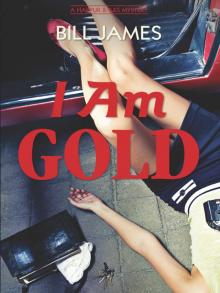 I Am Gold
I Am Gold World War Two Will Not Take Place
World War Two Will Not Take Place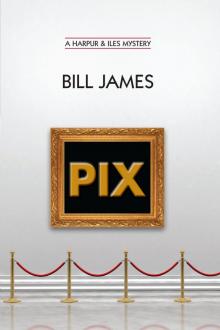 Pix (Volume Book 24) (Harpur & Iles Mysteries)
Pix (Volume Book 24) (Harpur & Iles Mysteries) Disclosures
Disclosures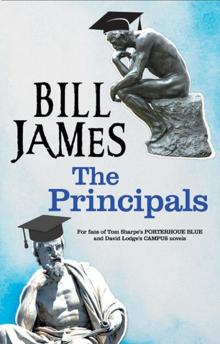 The Principals
The Principals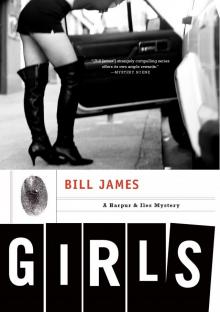 Girls
Girls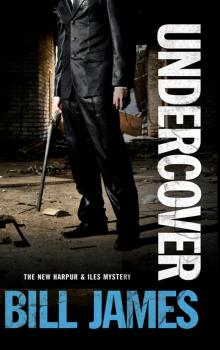 Undercover
Undercover Come Clean (1989)
Come Clean (1989) Close
Close Blaze Away
Blaze Away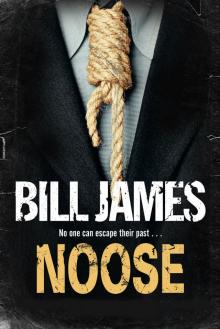 Noose
Noose First Fix Your Alibi
First Fix Your Alibi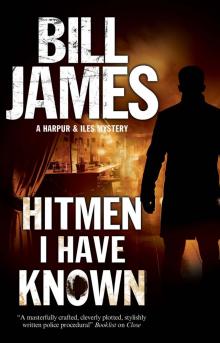 Hitmen I Have Known
Hitmen I Have Known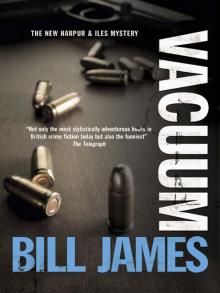 Vacuum
Vacuum Play Dead
Play Dead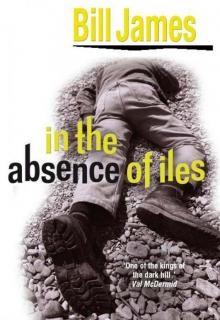 In the Absence of Iles
In the Absence of Iles The Man from the Train
The Man from the Train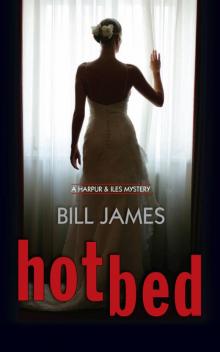 Hotbed
Hotbed Popular Crime
Popular Crime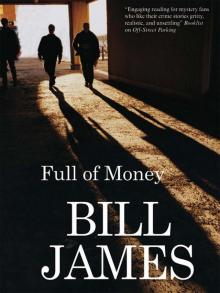 Full of Money
Full of Money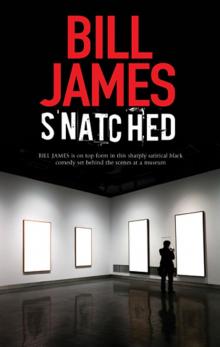 Snatched
Snatched